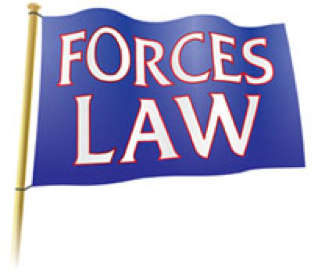Specialists in Unfair Dismissal Claims
Have I been unfairly dismissed?
In short, you are unfairly dismissed when you are sacked for reasons that are both unreasonable and unlawful and/or your employer failed to follow the right procedure when you were dismissed.
Am I eligible for unfair dismissal compensation?
- Were you employed for at least 24 months?
- Did your employer have a fair reason to dismiss you?
- Was it reasonable for your employer to sack you?
- Did your employer follow a fair procedure?
- Are you aged 65 or under, or under the usual retirement age for your occupation?
To find out more about whether you are likely to have a valid claim for compensation, simply call our employment lawyers now on FREEPHONE 0800 1404544 or Salisbury 01722 422300.
Claiming unfair dismissal compensation? Why use us?
- Our Solicitors are unfair dismissal compensation experts with significant experience in this specialist area of employment law
- We provide FREE initial phone advice on unfair dismissal claims
- We offer no win no fee unfair dismissal compensation agreements for appropriate cases where damages are likely to be in excess of £25,000
- Our Solicitors can run your case without you needing to attend our offices – communicating with you through email and phone, minimising your inconvenience. Alternatively, you can meet us in our 4 Wiltshire and Hampshire offices. If proceedings have to be issued in the Employment Tribunal, we will make sure that this is local to your former workplace.
What factors will an Unfair Dismissal Tribunal consider?
An unfair dismissal occurs where an employer terminates an employee’s contract for a reason or in a way that is not fair or reasonable. An employee who has been unfairly dismissed can make an unfair dismissal claim for compensation.
When looking at claims for compensation, a Tribunal will look at two things. Firstly is the employer’s reason for the dismissal ‘fair’, and secondly did the employer use a fair procedure.
What is a ‘fair’ reason for a dismissal?
Employment law gives employers 5 basic reasons that are considered fair:
- Redundancy: the need to make redundancies arises when a business closes down, no longer has a demand for work at a particular location, or if the employer decides to cut down the workforce responsible for a particular task. If workers employed in this way cannot be deployed elsewhere then they are often made redundant. Employers must, however, follow the correct procedure in making redundancies; which involves discussing the selection process with the employees and usually making a redundancy payment
- Conduct: if an employee commits theft, fraud or breaches the terms of their employment contract, the employer can dismiss them on the grounds of conduct
- Capability: dismissal on the ground of capability tends to apply to incompetent employees who simply cannot do their job properly perhaps due to a lack of experience or qualifications. Dismissal can also be made on this ground if the employee spends long periods of time absent from work (note this does not avoid disability discrimination law)
- Statutory Restriction: this occurs when continuing to employ someone would result in the employer breaking the law. For example an employer would be entitled to fairly sack a taxi driver who was disqualified from driving or a foreign worker whose visa has expired. This ground also applies to any employees who commit illegal activities at work
- Other substantial reason: this catch-all provision covers numerous different reasons for dismissal. The reason, however, must be ‘substantial’ and the employer must be left with no option other than dismissal
What is a ‘fair’ procedure for a dismissal?
Even if an employer has a fair reason for dismissing an employee, that dismissal is unfair if they don’t follow the correct procedure.
A fair procedure occurs where an employer acts reasonably and follows a set disciplinary process. This involves providing the employee with warnings, holding disciplinary hearings and informing employees of their rights to have independent representation. More information on this procedure can be found in the ACAS Code of Practice.
Many employers lose an unfair dismissal claim by simply having inadequate disciplinary procedures – so, for example, although redundancy is one of the grounds for a fair dismissal, using their own procedure creates an unfair redundancy.
Unfairly Dismissed? Don’t Delay. Contact us today
There’s a strict three month time limit for making a claim – so if you think you have been unfairly dismissed get in touch with us straight away
Need Expert Unfair Dismissal Claims Advice ? Our Employment Solicitors can help
If you think you have been unfairly dismissed, let us put your mind at rest. Our employment law team always offer free initial legal advice on the phone – with no strings attached
- Call our team on Salisbury (01722) 422300, or FREEPHONE 0800 1404544 OR
- Complete the email enquiry form below.













